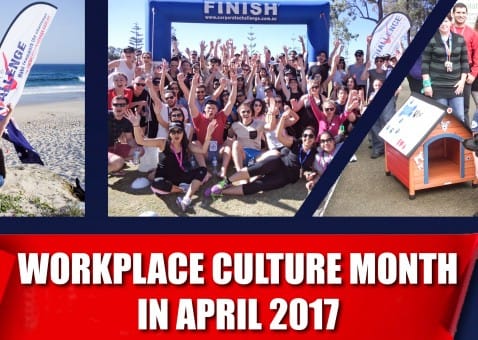The COVID-19 pandemic has forced many businesses to adapt to a new way of working. More and more employees are now working from home, and the number of people working in the office is declining. This shift to a hybrid workforce raises some interesting questions about the future of the modern workplace. Will we see more businesses move to a hybrid model? What are the pros and cons of working from home vs working in the office? And how can leaders make sure their hybrid workforce is a success? We’ll answer all these questions and more in this blog post.
Let start with the facts:
A hybrid workplace can be defined as a work environment that combines remote working with office-based work. Workers can decide where they are most productive – or choose a combination of both – based on their preferences. This shift to a hybrid workplace is being driven by a number of factors, including the COVID-19 pandemic, the rise of digital nomads, and the desire for greater work/life balance.
Hybrid workplaces are here to stay! An Accenture report noted Hybrid work models are used by 63% of high-growth companies . Interestingly 69% of companies with negative or no growth reject the concept of hybrid workforces and prefer all onsite or all remote employees. Most importantly it was found that employees prefer a hybrid model 83% of the time.
This doesn’t mean the modern workforce are looking for remote options only with more than 74% of Gen Z respondents prefer interacting with colleagues face-to-face, followed by Baby Boomers (68%), and Gen Xers (66%).
So what does this mean for the future of the workforce? well, 2022 is going to be an interesting year for determining the new norm for many organizations. A study by Gartner found that by 2025, 80% of organizations will require employees to work more flexibly outside traditional offices and while the hybrid model is developing daily there are many challenges leaders are still yet to figure out. Questions like what is the actual cost of implementing the hybrid work model, will compensation rates change for remote vs hybrid employees, and the impact on company morale are all hot topics in the business world.
Today lets explore the hybrid work model and company culture. There are pros and cons to both working from home and working in the office. Working from home gives you more flexibility and freedom, but it can also be isolating and lonely. Working in the office gives you face-to-face interaction with colleagues, but it can also be time demanding and stressful. The key to making a hybrid workplace work for your culture is finding the right balance between the two.
Maintaining a strong workplace culture will help to create a sense of community and connection, even when employees are working remotely. This is essential for keeping employees engaged and motivated. Leaders must be strategic in their planning to ensure a smooth transition and continued success for their team. Here are a few key tips for leaders to keep culture top of mind when deploying a hybrid workplace model.

Hybrid Model Policy
The first step is to ensure you have a clear policy for your hybrid workplace. This policy should outline the different types of arrangements that are available, from flex days and split-weeks to designated teams. It should also explain how these arrangements will be structured and what the expectations are for employees.
You may like to consider the use of hot desks, reporting the start and finish of a workday and your recruitment process. This policy will help to ensure that everyone is on the same page and knows what is expected of them.
Teamwork Makes the Dream Work
A successful hybrid work model requires buy-in from employees. After all, they are the ones who will be spending part of their time working from home and part of their time in the office. To get employees on board with your hybrid model, there are a few things you can do:
– Include them in creating your policy. If you involve your team in crafting the rules for your hybrid workplace, they will be more likely to follow them.
– Collect regular feedback. Make sure to check in with employees regularly to see how they’re adjusting to the new arrangement. This will help you identify any areas that need improvement.
– Have an open door policy. Encourage employees to come to you with any questions or concerns they have about the hybrid model. By being open and receptive to feedback, you’ll create a better working environment for everyone.
Communication:
Communicate, communicate, communicate: Establish clear objectives and expectations for employees using your hybrid model policy. Employees should know what is expected of them, whether they are working remotely or in the office.
Encourage deliberate communication and collaboration among employees. Hybrid workplaces can lead to feelings of isolation among employees who are not in the office. It is important to develop an environment that fosters regular communication regardless of location so everyone feels like they are part of the team.
Advise on best practice for employees to communicate ie. use video conferencing or other digital tools for meetings that mimic face to face collaboration. Your solutions should enable real-time communication between remote and in office team members while providing a metaphorical water cooler.
Get Social:
Hybrid workplaces can be isolating, so it’s important to create opportunities for social interaction. In a hybrid workplace model, team events and social gatherings can play an important role in enhancing workplace culture. By hosting regular social events, leaders can create opportunities for employees to connect with each other and build relationships. These events can also be used to promote company values and showcase the organization’s culture.
When planning social events, it is important to consider the needs of all employees. For example, some employees may prefer virtual team events while others may prefer in-person gatherings. Leaders should also consider the types of activities that will appeal to different employee groups. For example, some employees may prefer networking events while others may prefer team-building activities. By offering a variety of social events, leaders can create a hybrid workplace that is both inclusive and enjoyable for all employees.


Be Flexible
The hybrid work model is still relatively new so be patient and flexible both with yourself and your team. There will be teething issues as you work out what works best for your business. Allow yourself and your team the opportunity to experiment and find the right balance that suits everyone.
A key characteristic of a successful hybrid workplace is progressive leadership. Leaders must be willing to embrace new ideas and challenge the status quo. They should also be open to feedback and willing to make changes based on the needs of their employees.
The most important thing is to keep an open mind and be willing to adapt as the needs of your business change. A hybrid workplace can offer many benefits, but it’s important to remember that there is no one-size-fits-all solution. By being flexible and adaptable, leaders can create a hybrid workplace that works for their employees and their business.
Get Support
Hybrid workplaces are not just the future of work, they are happening! As our workforce continues to evolve, it’s important that leaders adapt and embrace new models of work.
At Corporate Challenge Events we believe that creating a happy and cohesive team, begins with a positive team culture. However building and maintaining a positive team culture I a hybrid environment is not always an easy task.
That’s why we developed the Positive Teams Masterclass!
Delivered over a twelve month period, the Positive Teams Masterclass combines the very best of our programs to support your hybrid workplace, allowing your team to thrive and grow as time goes on. Consisting of a combination of Team Building Programs, both virtual and in person, as well as Team Building Workshops, the Positive Teams Masterclass provides you with the tools and support to build and maintain your workplace culture long after the programs conclusion.
Do you have any tips for creating a successful hybrid workplace? Share them in the comments below!
Corporate Challenge Events believe success is created through positive fun team cultures. Our passion is to help organisations achieve this through delivering unique and rewarding events, corporate training and team experiences that leave a lasting happiness.




Recent Comments